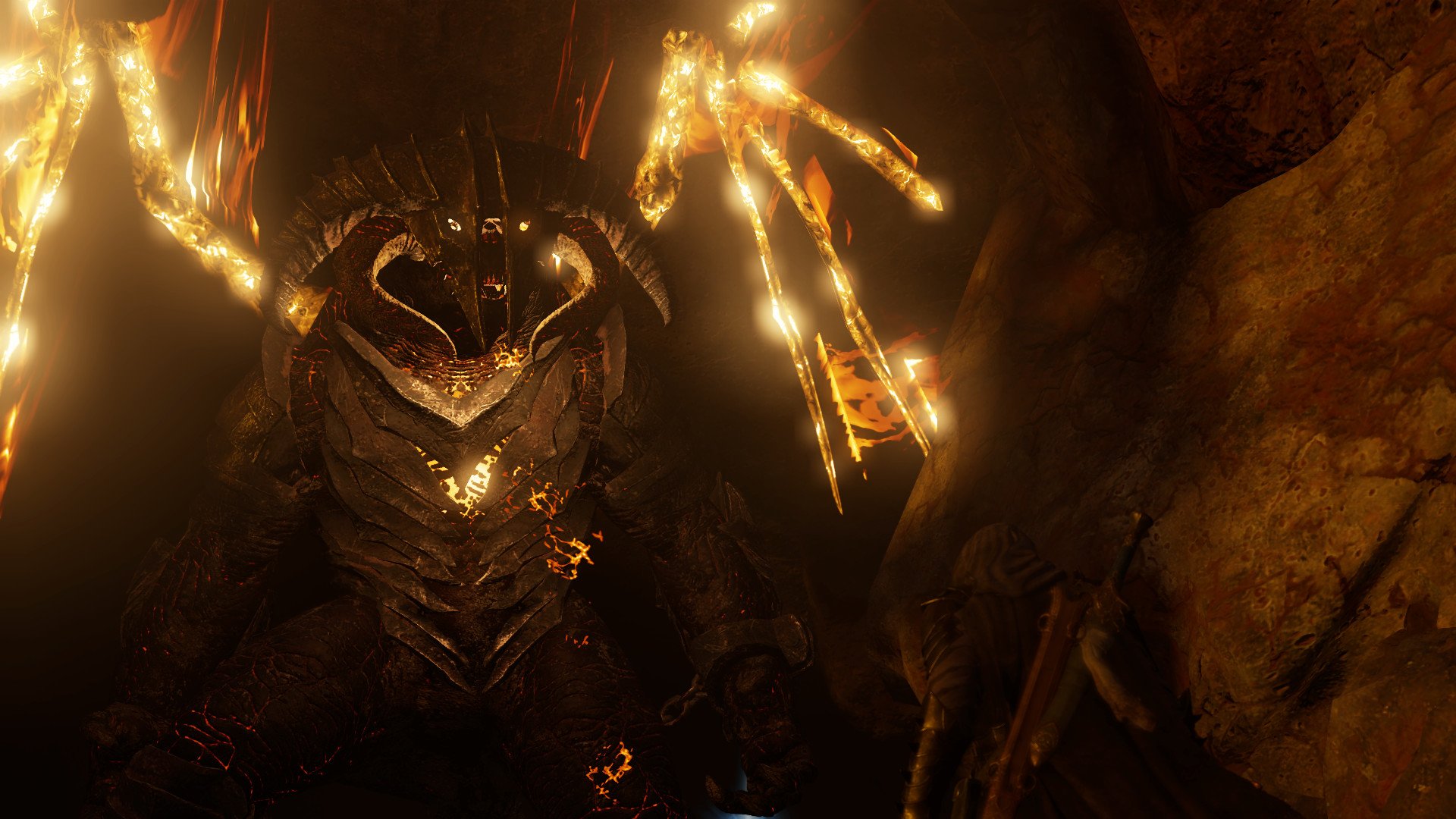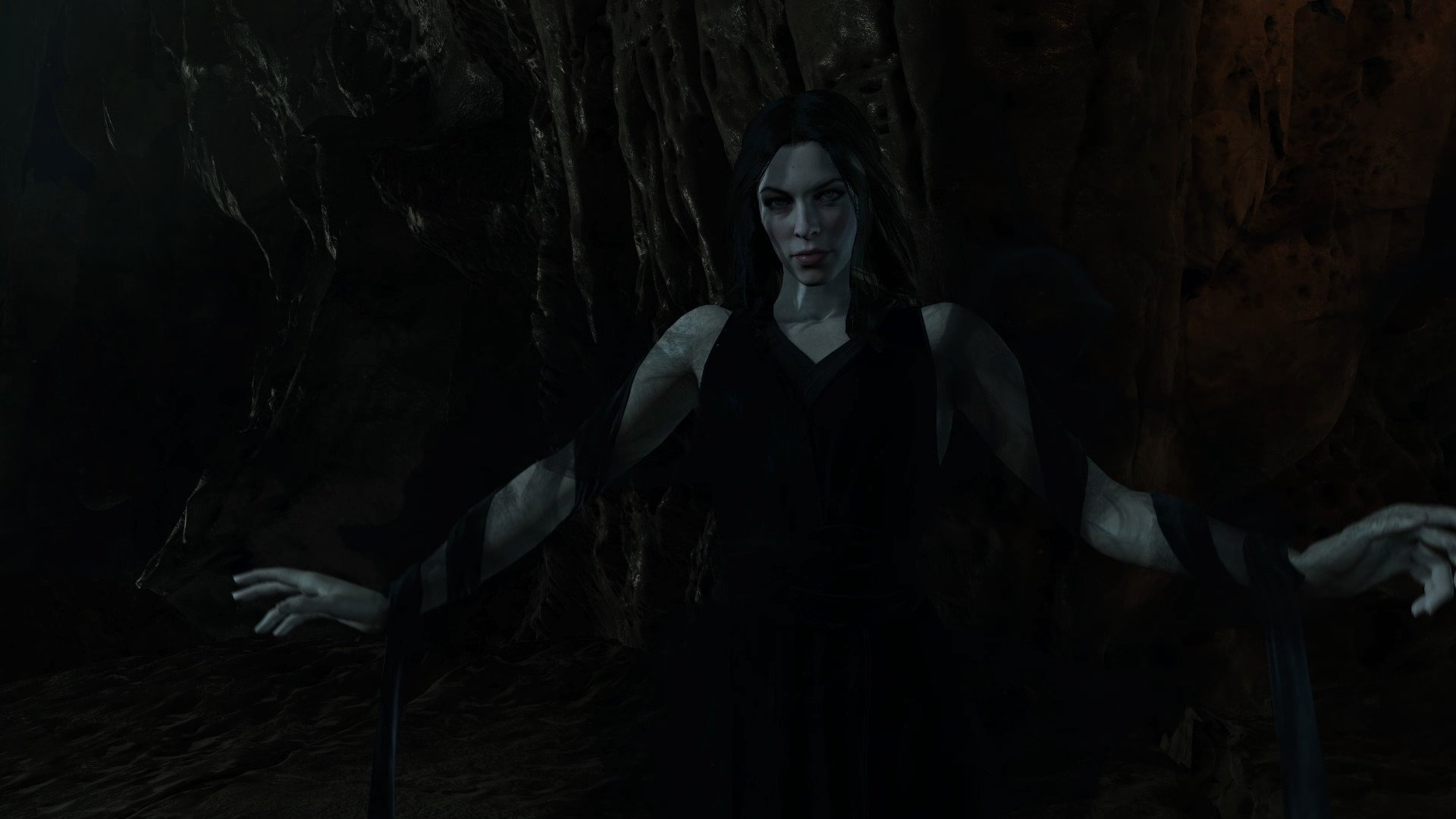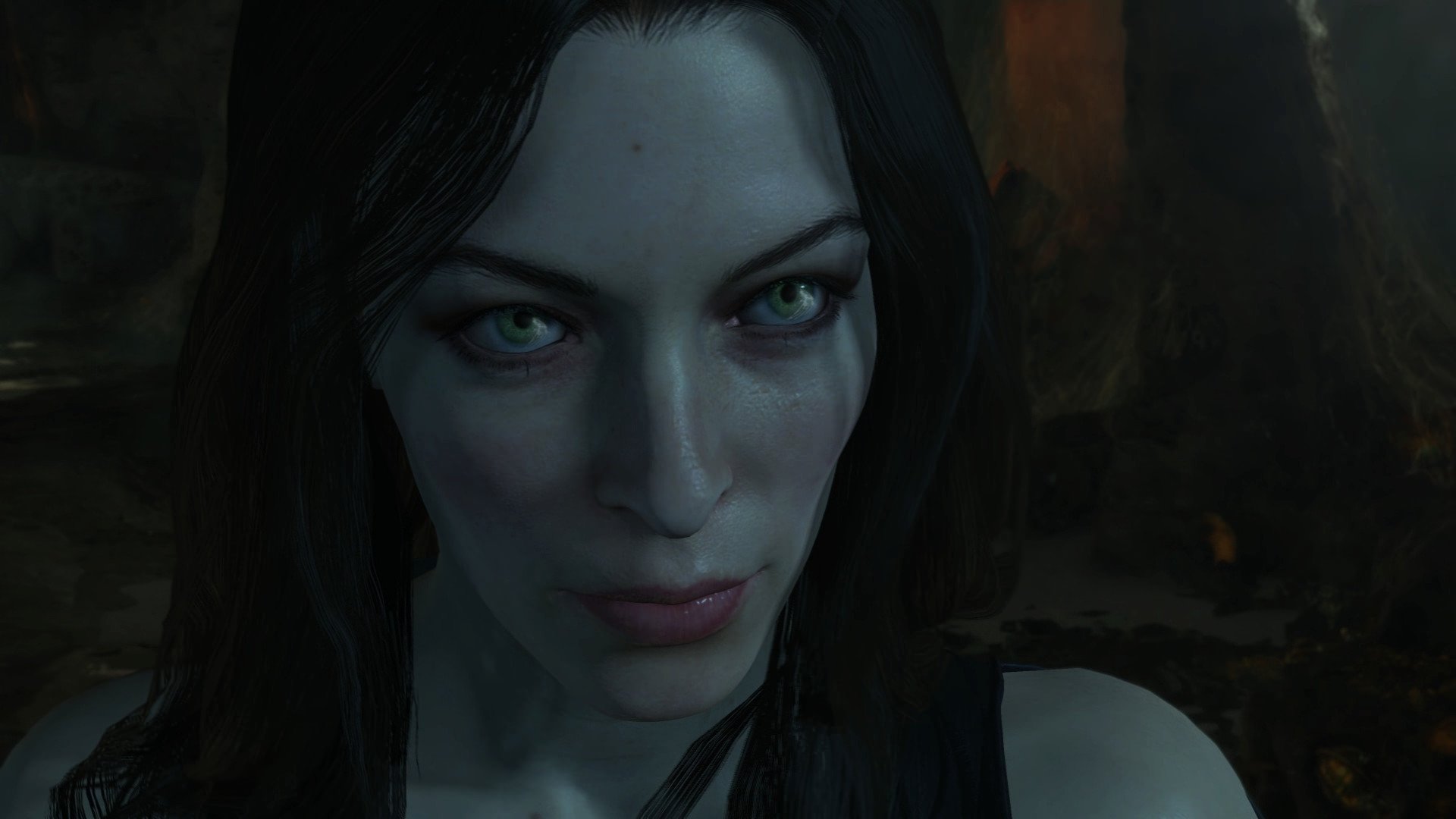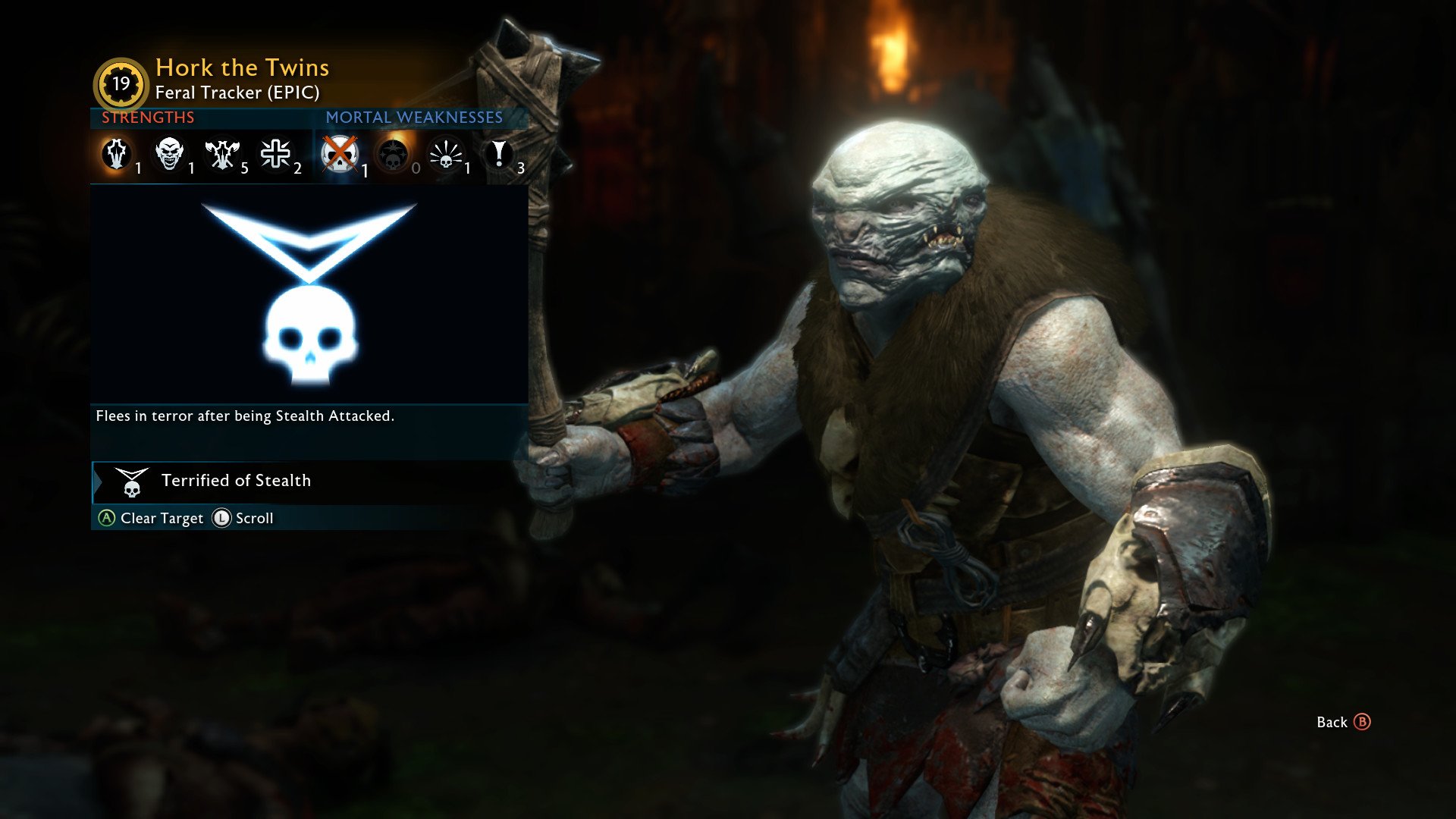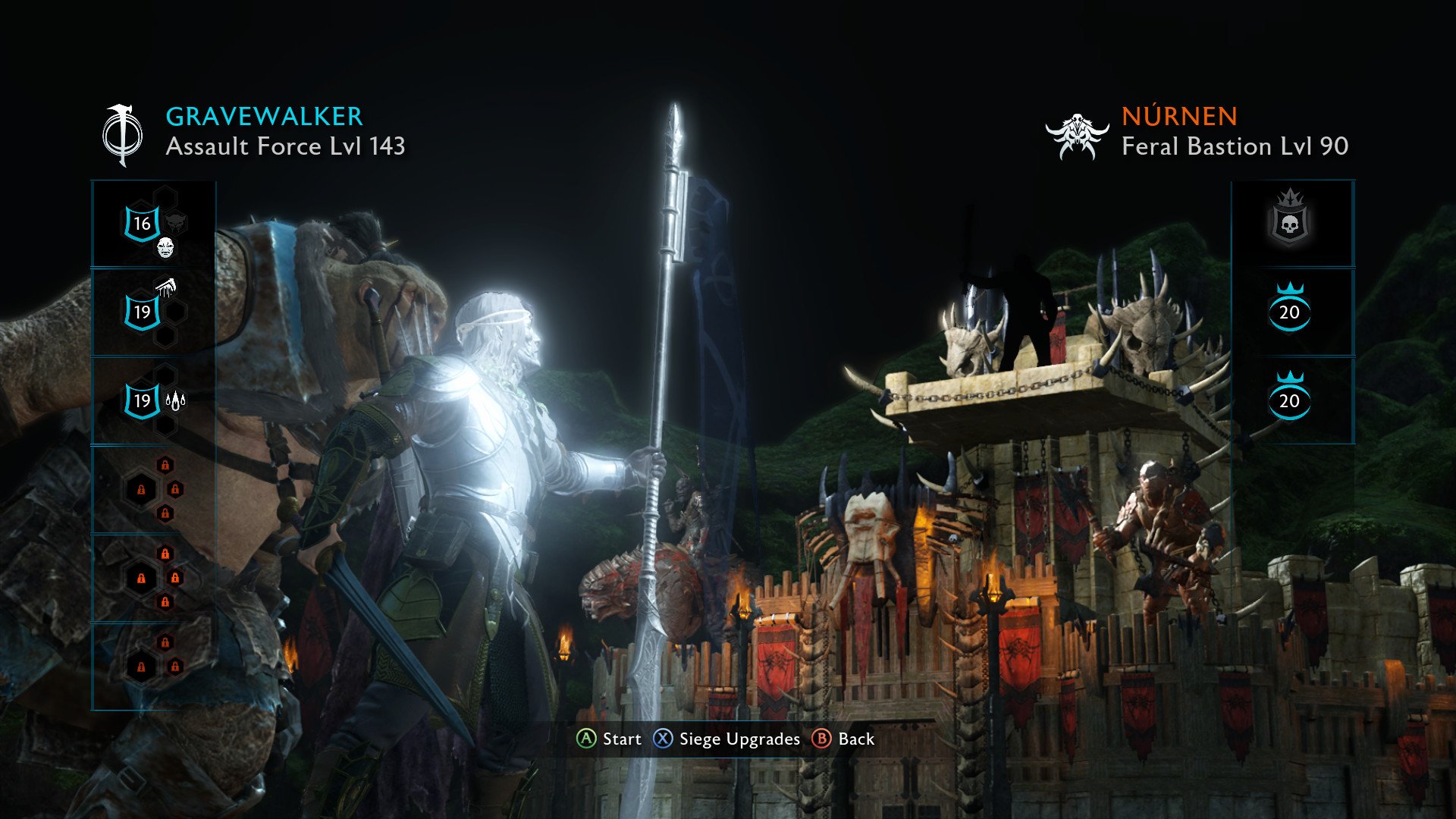Shadow of War should have been easy sailing in terms of marketing, given the popularity of its predecessor, Shadow of Mordor. However, the inclusion of loot crates that cost real money raised the specter of micropayments and hinted at a gameplay loop that had been designed around incentivizing purchases. Thankfully, that turned out not to be the case.
What harms Shadow of War isn't its loot-crate mechanics, it's the repetition. Shadow of War is a huge game, but the vast majority of the experience feels drawn out, with the same tasks over and over again. Thankfully, the experience is saved by some amazing character writing and acting, the dynamic Nemesis system, and a solid story.
Shadow of War visuals, story, and setting
Shadow of War is huge, taking place across several expansive open-world regions. Various types of terrain are represented, from snowy mountain climbs to verdant forests, each with their own styles of architecture.
On Xbox One, the game made tradeoffs to achieve its large open world, which features impressive draw distances and a high density of unique, procedurally-generated orc enemies. At any one time, there can be dozens of orcs and other enemies on screen, resulting in all sorts of glorious chaos. But as a result, the textures and shadows are a little muddy compared to other similar games. Surely the enhanced 4K Xbox One X version will look better, without sacrificing the breadth and complexity the game's design offers.
As a Lord of the Rings title, the game's developer, Monolith, has the weight of carrying one of the world's most beloved franchises into a new medium. The studio has done an incredible job. Each orc looks as grotesquely unique as the last, and across dozens of hours of play, I didn't hear the same line of orc dialogue twice, nor see the same orc design appear twice. This elevates the setting beyond other games, giving believability and character to even the most lowly NPC sword-fodder.
Shadow of War is well-polished and should be a grand showcase on Xbox One X.
Middle-earth: Shadow of War takes some liberties with established Lord of the Rings lore, but you'll get some particularly epic set pieces out of it. The interactions with the forest spirit Carnán and the fiery Balrog from the original trailers are particularly memorable.
Huge battles can take place within the game, due to the siege mechanics. Even when there are dozens and dozens of orcs on screen, battling it out with each other, I haven't encountered a single crash or performance hitch. Shadow of War is well-polished and should be a grand showcase on Xbox One X or a capable Windows PC.
All the latest news, reviews, and guides for Windows and Xbox diehards.
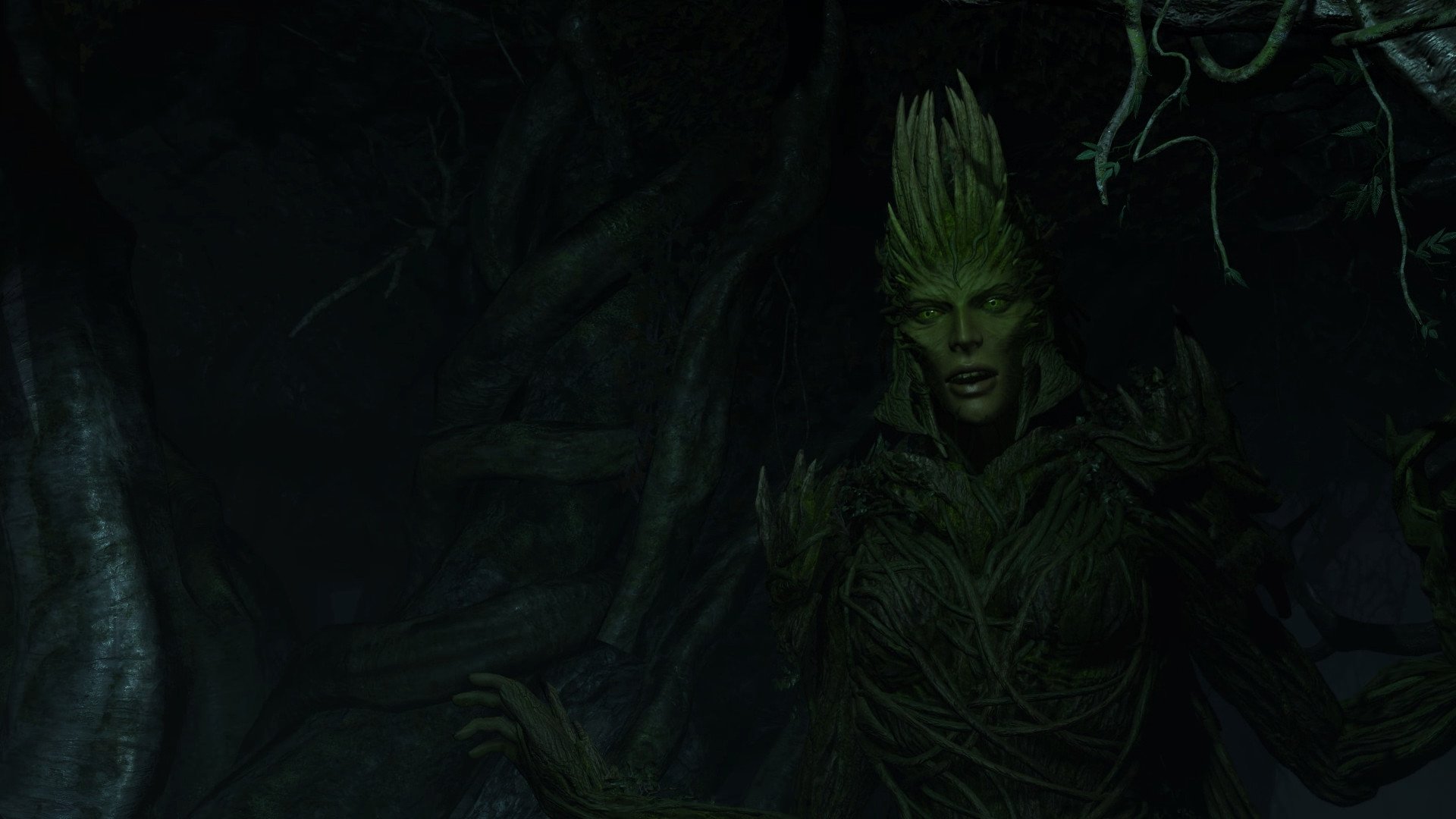
Shadow of War is also accompanied by some tremendous audio work, from the gargantuan amounts of unique dialogue for each individual orc, to the sickening parting of orc sinews severed by your blades. My only complaint is that a lot of the sound and animation work, at least in the effects department, returned from the game's predecessor Shadow of Mordor.
Shadow of War has an exciting, moving, and often humorous story that keeps the game moving.
That's not exactly a problem, as it was solid back then, but it adds to a sense of repetition. Thankfully, Shadow of War has an exciting, moving, and often times humorous story that keeps the game moving.
Shadow of War has an entertaining plot full of great characters worthy of its big-name franchise. The game follows Talion from the first game, and his ghostly companion, Celebrimbor, as they continue their quest for vengeance against Lord of the Rings' central antagonist, the dark lord Sauron. Throughout the game, you encounter all sorts of mythical creatures, characters, and lore, it's a shame that a lot of the coolest moments are preceded by hours of what feels like busy work.
Shadow of War gameplay
Shadow of War plays very similarly to its predecessor. It borrows from the tried-and-tested Ubisoft-style open-world format, with large connected areas with special vantage towers that can be unlocked to provide fast travel and points of interest on the map. Most of the objects you'll find scattered around the world are collectibles, either tied to achievements or unlockable gear to improve your survivability and offense. Finding them is no more fun than it is in any other open-world game that uses them.
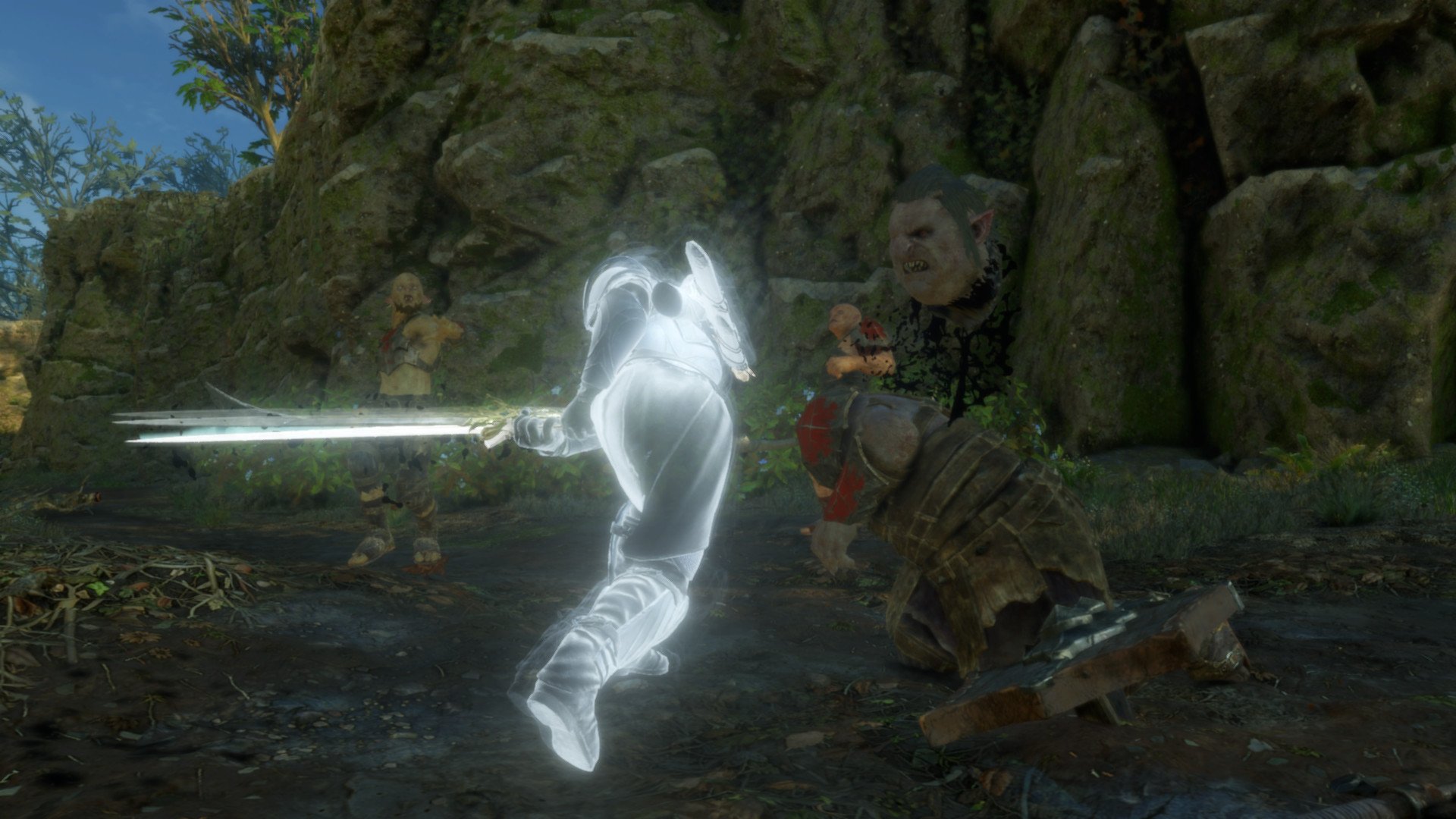
There are more fun ways to obtain loot, namely by murdering high-level orcs that appear as part of the game's Nemesis systems, which has been expanded to include fortress sieges. Shadow of War's combat handles similarly to the Batman Arkham games, ditching the Dark Knight's no-kill policy for brutal, limb-slicing, head-chopping execution animations that are every bit as satisfying as they were in the previous game – mainly because they are often the same animations.
Many of the same skills and abilities return from the previous game, with separate meters that can be generated to perform finishing movies, either chopping orcs into bits or by draining their health. Every skill can be modified with additional power-ups, transforming their usage and giving you additional tactical options.
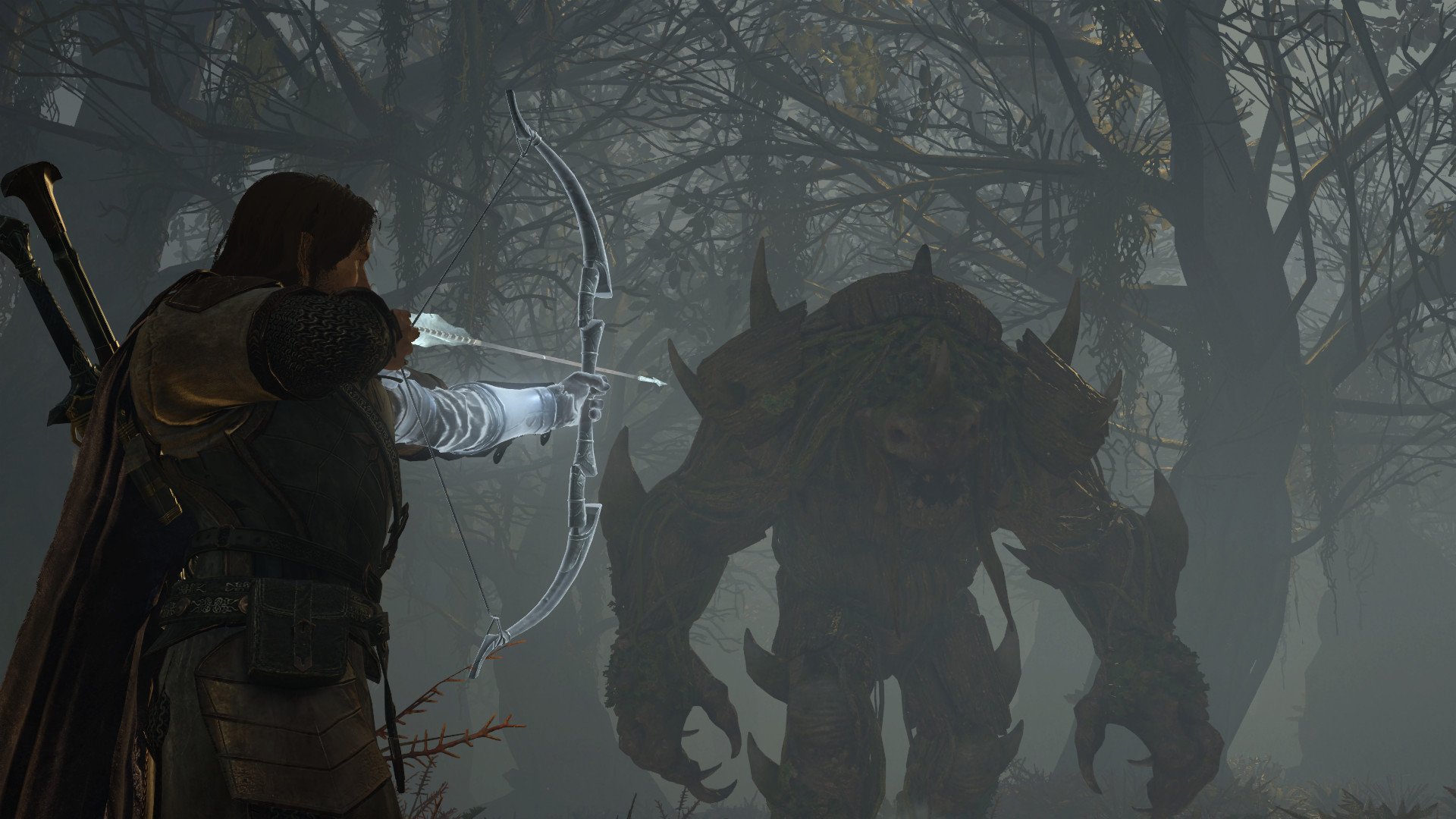
You can combine different skills with different types of armor to create unique playstyles. For example, I managed to find piles of gear that enhanced poison damage, which when combined with poison weapons and poison-inducing ability modifiers, proved itself a powerful playstyle.
Play on Nemesis difficulty if you fancy a decent challenge, because Normal is too easy.
On Normal difficulty you won't really need to worry about maximizing or optimizing, as the game plays more like a power-fantasy. You should play on Nemesis difficulty if you fancy a decent challenge, because Normal is too easy.
Normal difficulty trivializes some of the game's more interesting systems, such as the new Nemesis system, which has you play orc politics in order to build up an army to assault the game's true nemesis: Sauron.
The orc captains form many of the game's side quests, and they are dynamically generated from a pool of different event types. The orcs squabble among themselves, hunt, and attempt to assassinate each other, providing you with opportunities to sew chaos within Sauron's ranks. If you intervene in any of these events, you're granted opportunities to enslave an orc into your ranks, and send them on their own missions to help you subvert the local power structure.
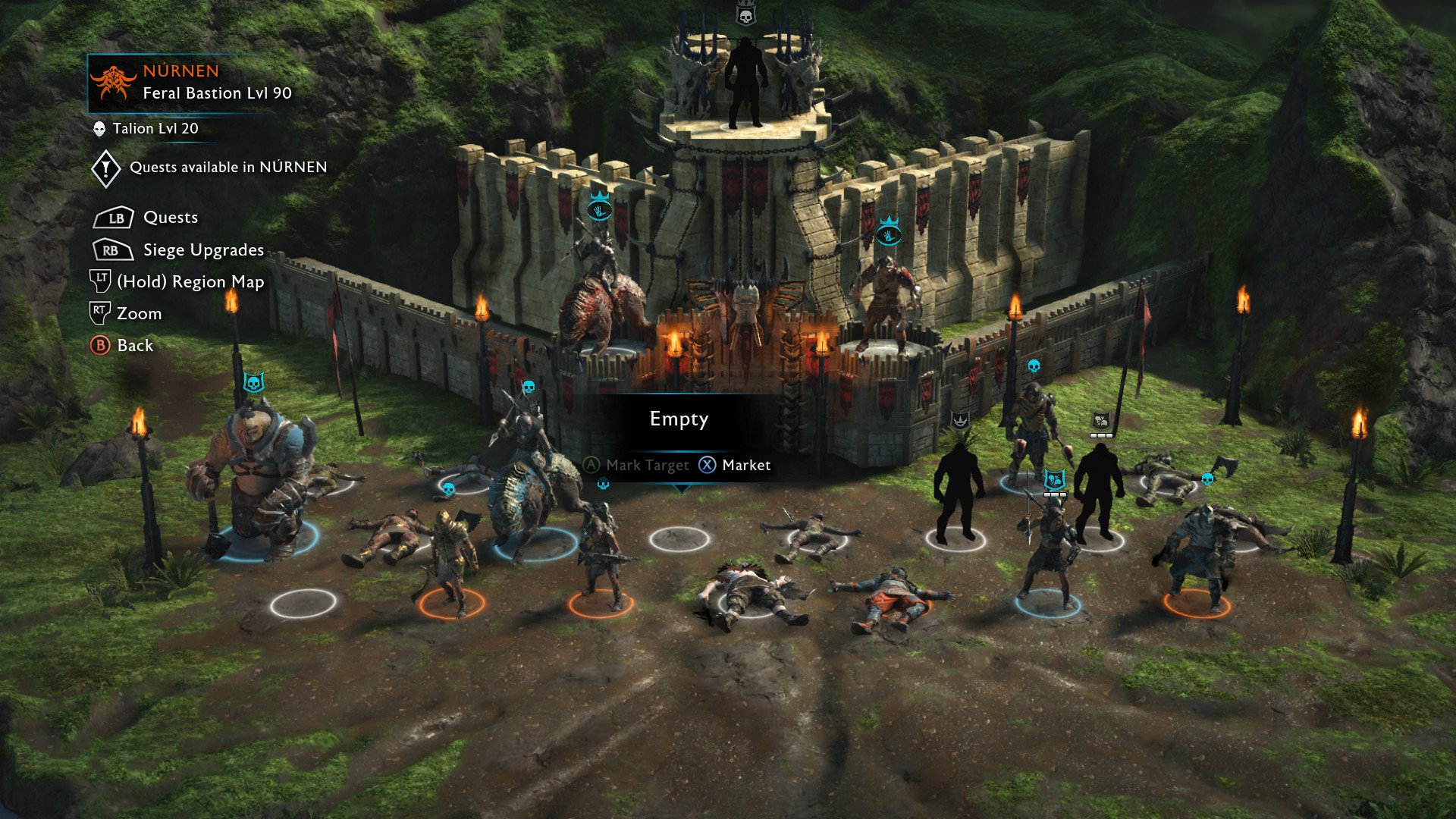
Each open world area has a capturable fortress, which comes with its own types of defences, orc warlords, and siege weapons. Undertaking missions to kill a fortress's captains will reduce the fortress's level, until you can match it with your own army of enslaved orcs. It will also eliminate any special defenses the fortress might have.
The biggest issue with Shadow of War isn't its loot boxes, it's the repetitive gameplay.
Any orc captains you enslaved will be able to join you in the battle, each coming with their own unique lines of dialogue and abilities. On Nemesis difficulty, exploiting orc captains' unique traits can maximize your success rate in battle. Some are weak against poison, for example, while others might have immunity to fire. Knowing your enemy is completely trivial on Normal difficulty, however, as you can pretty much just slash your way to victory in even the most dangerous situations.
Most of Shadow of War's gameplay starts feeling trivial on Normal difficulty. After the first fortress assault, you'll quickly notice that almost every mission is the same combination of go here and then kill or enslave this captain, over and over again. You can alter your plan of attack, but since the layout and available options in each encampment and outpost are basically the same, there's no real reason to plan your assaults. To get the game's true ending, you'll be doing the same tasks over and over without any story missions to drive your interest forward.
Of course, you can skip a lot of this by dropping cash on Shadow of War's infamous loot boxes, which come with pre-enslaved orc captains to help you fill out your army without doing the footwork. It's by no means what I'd call mandatory though. It's fairly easy to build up your own armies through natural play, and the loot and equipment you obtain in-game never feels hugely consequential, even if you're just rocking basic upgrades versus the "epic" ones you can get for killing superior orcs.
Shadow of War has great gameplay, to a point. The combat is tight and well designed, emulating the first game, but the castle siege mechanics are not as interesting as billed. You simply vault over the walls, press down on the d-pad to capture some points, kill a few orc captains, and win. The layout of each castle is the same. The Nemesis system can make it more interesting, throwing up unique orc captains and dynamic events such as betrayals, but over the course of the game, even these "dynamic events" feel repetitive.
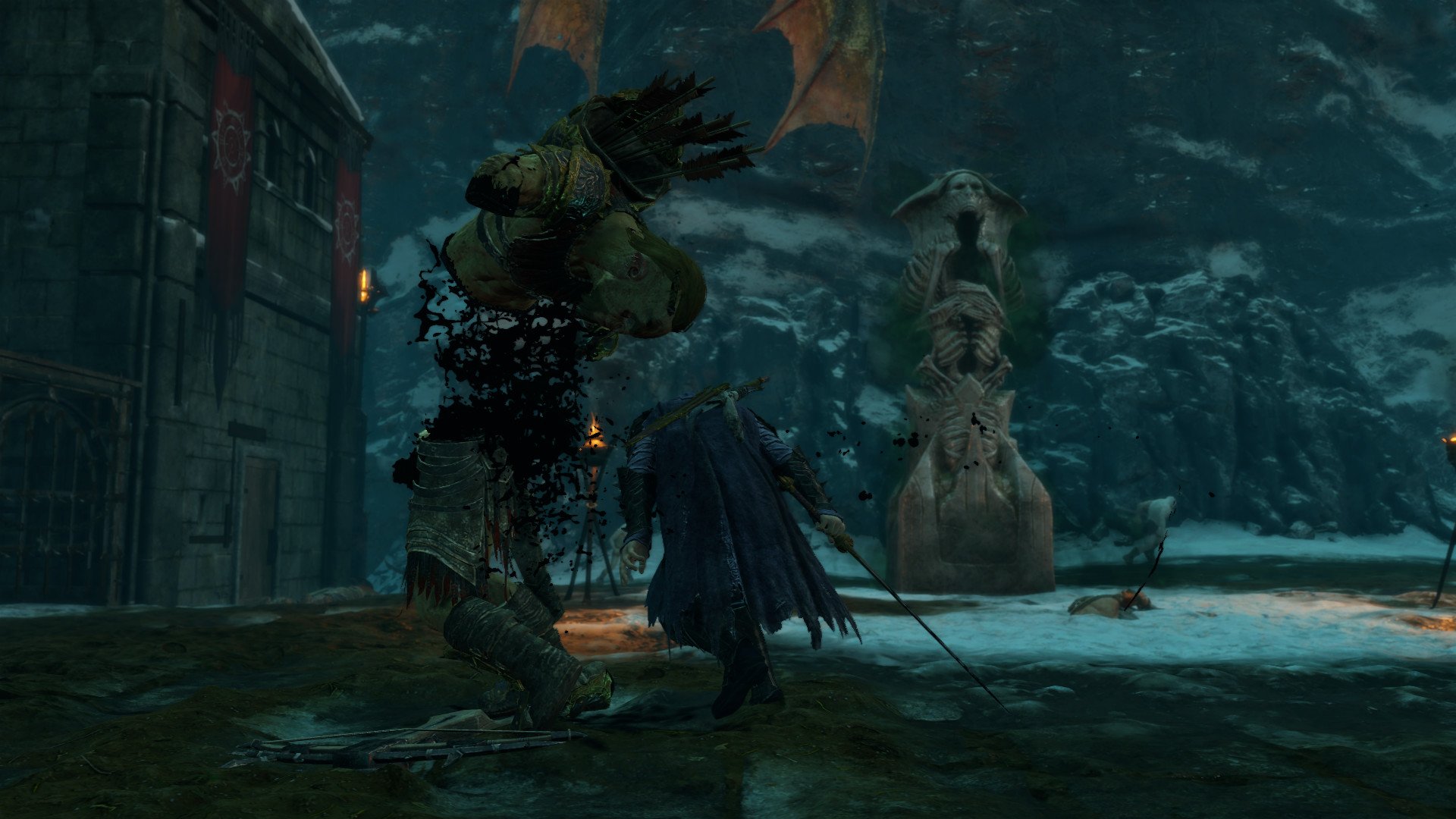
The biggest issue with Shadow of War isn't its loot boxes, it's the repetitive gameplay. I'm not sure anyone who played Shadow of Mordor was thinking they wished they could do the grindiest parts of the game again, drawn out over an extra three dozen hours.
Middle-earth: Shadow of War review conclusion
Shadow of War is a solid open-world action game that faithfully recreates Tolkien's Lord of the Rings mythology through the lens of the big-budget movies. The character acting, expressions, and art work are all worthy of Hollywood, and the story is fulfilling and engaging.
Shadow of War's combat is every bit as satisfying as the first, with tight, vicious swordplay, an extensive amount of moves to use and fun features, like beast riding and stealth. We've seen it all before in the first game, though.
Despite having fun combat, some extra RPG mechanics, and an evolved Nemesis system which includes castle siege gameplay, Shadow of War gets repetitive fairly quickly.
Pros:
- Great cinematic story.
- Tight, polished combat.
- Wonderful art and design.
- Xbox Play Anywhere.
Cons:
- Gameplay is repetitive.
- Bland open world collectathons and busy work.
For all the controversy, Shadow of War's loot crates are a largely pointless affair, but obtaining the "true ending" requires such extensive amounts of drawn out grinding, you have to wonder whether it was set up that way on purpose to try and nudge people to buy extra orcs to skip the monotony.
If you enjoyed Shadow of Mordor, you'll also enjoy Shadow of War, but if you feel fatigued as I do from this type of formulaic open world game, Shadow of War amplifies the issues with the genre rather than improves upon them. If you just want a relatively straight-forward experience you can turn on and quickly jump into, slicing up hundreds and hundreds of squishy monsters with little else to worry about, few games do it this well.
Shadow of War is available now for Xbox One, PlayStation 4, and PC. On Xbox it is a Play Anywhere title, granting a license for both Windows 10 and Xbox One play. It will also be enhanced for the Xbox One X for 4K.
This review was conducted on Xbox One using a copy provided by Warner Bros.

Jez Corden is the Executive Editor at Windows Central, focusing primarily on all things Xbox and gaming. Jez is known for breaking exclusive news and analysis as relates to the Microsoft ecosystem — while being powered by tea. Follow on X.com/JezCorden and tune in to the XB2 Podcast, all about, you guessed it, Xbox!
